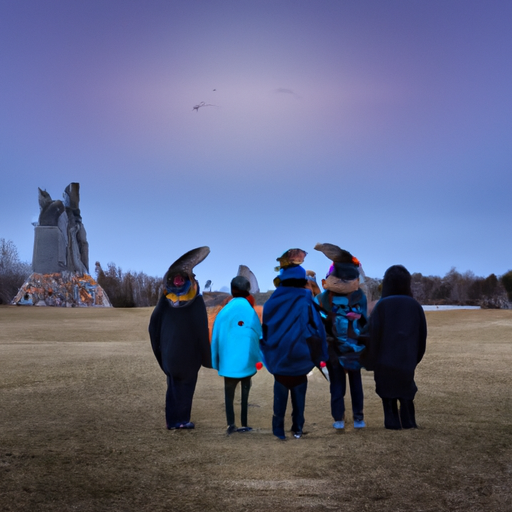Manitoba Steps Up in Opioid Fight: Victory for First Nations Children
In recent years, the conversations dominating the news and media have invariably circled back to the escalating rates of opioid use, particularly in Canada. Bearing the brunt of this ongoing opioid crisis are vulnerable factions like the First Nations communities. Highlighting a new stride in the fight against this crisis, this article published on APTN News brings us a ray of hope.
Long-Awaited Legal Victory
After a grueling 14-year-long legal battle to gain access to disability services, First Nations children in Manitoba have finally emerged victorious. This news is a significant milestone in a broader narrative, penetrating a deeply entrenched opioid crisis on a national scale.
GRACE: Holding the Beacon Aloft
First Nations child welfare agencies started the Getting Ready for Employment and Career (GRACE) program in the 2000s, intended to halt the cycle of kids graduating from the child welfare system into homelessness or crime. Seven years later, the provincial government defenders argued children registered with INAC (Indigenous and Northern Affairs Canada) were only eligible for federal government aid. This decision was reversed, ensuring First Nations kids can access the same long-term provincial services offered to others. This outstanding initiative deserves commendation for countering the deleterious effects of the opioid crisis on young lives effectively.
Implications of This Settlement
It is a massive victory for First Nations children in Manitoba, shattering mere geographical eligibility barriers. It opens doors to comprehensive medical, social, and psychological support, significantly improving the chances of these young lives entering mainstream society, free from the deadly clutches of narcotics.
Key Points
- Decades-long legal fight for disability services is settled in favour of First Nations children
- Initiated by the GRACE program in early 2000s
- Provincial government undermined the initiative seven years later
- The discrimination has now ended, allowing First Nations kids to access the same services as others.
Addressing The Multi-faceted Opioid Crisis
Manitoba’s recent legal victory sets a precedent worthy of emulation across Canada. While the opioid class action is an essential step, complementary actions like the one rendered by the Manitoba authorities also maintain crucial importance, particularly in high-risk populations such as the homeless.
Considering the urgency of the situation, dedicated efforts are merited to ensure that effective remedial interventions such as naloxone distribution amongst high-risk individuals and paramedics, opioid substitution treatment, and drug-checking services are readily available and accessible to those struggling under the grip of opioid misuse.
In Conclusion
The opioid crisis is a battle that can’t be won single-handedly. While it calls for nationwide amped action in the form of an opioid class action, it equally seeks to address the spectrum of problems stemming from it, such as crime and homelessness. Akin to the way in which Manitoba chose to uplift its vulnerable section, it’s about time we stepped up our response and wove a safety net around those most susceptible to the blow of this crisis.
It is noteworthy to see decisions being made that strive to extend supports to those most at risk. This news of the much-needed expansion of disability services for First Nations children signals an encouraging push in the right direction and reinforces the belief that with collective efforts, we stand a better chance at overcoming the opioid crisis.


